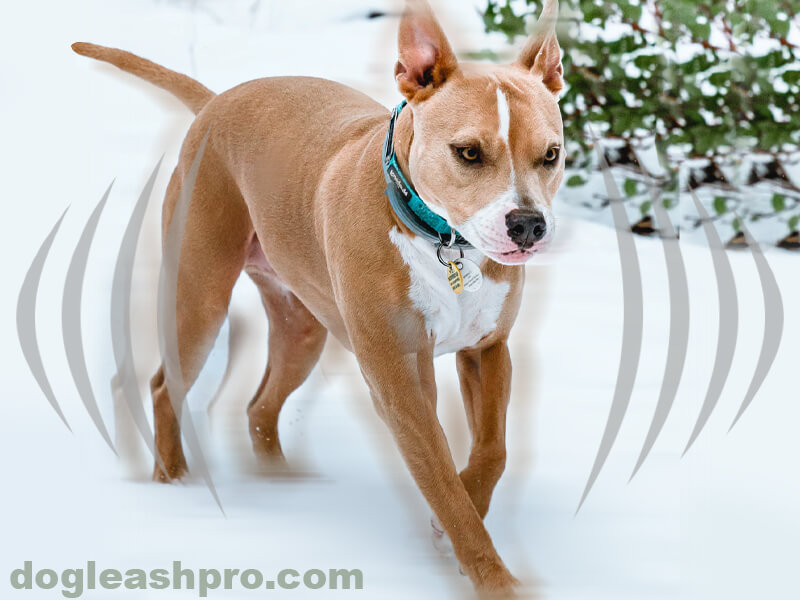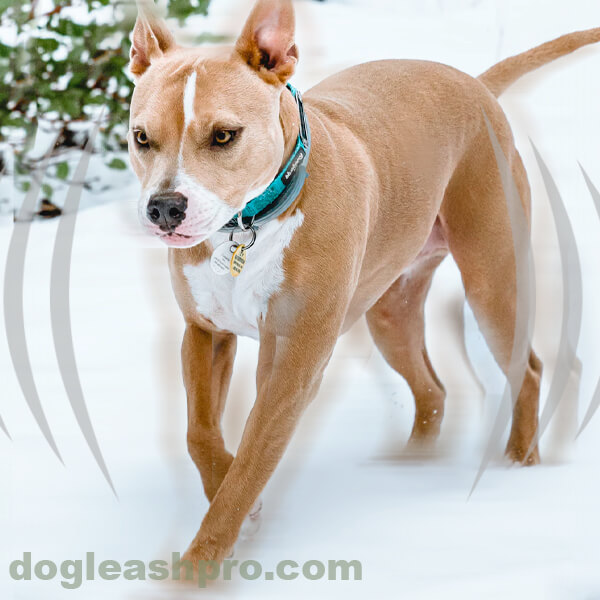
My mom’s German Shepherd dog, Luna, was just 4 years of age when she started walking in circles around us and wobbling around the house. This happened frequently that it got our attention. She was also tilting her head a little and one of her ears was lower than the other. We were very concerned and took her to the vet immediately.
We were glad we did because, after some tests, we found out that she had an ear infection. Luckily, once Luna recovered from her ear infection, she was back to her normal self. However, I’ve had many friends tell me that they’ve also noticed their dogs acting drunk and wobbly and the ear infection wasn’t the reason.
This means that there are many reasons why your dog is acting drunk and wobbly. Let’s get right into it and find out what is causing your canine companions to behave this way.
Table of Contents
My Dog Is Acting Drunk And Wobbly: What’s Causing It?

The reason behind your dog’s drunken demeanor can be as minor as the old-dog vestibular syndrome (VS) or a life-threatening situation like a stroke or poisoning. Even though strokes are rare in dogs, you shouldn’t take your dog’s disorientation lightly.
What is Vestibular Disease in Dogs?
The vestibular disease usually affects elderly canines. This condition disturbs dogs’ sense of balance, causing them to walk in circles, trip, run into things and collapse randomly.
The vestibular syndrome can be idiopathic — meaning it may not have any apparent reason. This condition isn’t fatal, and the affected dog usually recovers on its own.
In some cases, the vestibular disorder is brought on by other conditions, like inflammation, tumor, infection, and trauma near the brain stem. In such cases, the root cause needs to be treated first.
Two Types Of Vestibular Disease:
The vestibular system maintains balance in dogs. It has two components: the control center in the brain and the sensory system in the inner ear. Depending on which area is affected, vestibular dysfunction can be of two types.
1. Peripheral
When the sensory component of the balance system is affected, the vestibular syndrome is considered peripheral. The peripheral vestibular syndrome is the most common type of vestibular dysfunction. It is usually observed in older dogs and is less severe than the central vestibular syndrome.
Causes of Peripheral Vestibular Disease in Dogs
Peripheral vestibular syndrome arises due to the following reasons:
- Otitis (ear infection).
- Certain aural drugs or medicines.
- Hyperthyroidism.
- Eardrum or inner ear injury.
- Swelling of the vestibular nerve.
- Old age (idiopathic vestibular syndrome).
2. Central
When the control center of the balance system is affected, the vestibular syndrome is considered central. Central vestibular syndrome is a much rarer illness caused by inflammation, trauma, or a tumor near the brain stem.
Unlike peripheral vestibular disorder that affects senior dogs, the central vestibular disease is more often seen in younger pups.
What Does the Vestibular System Do?
The vestibular system keeps the dog’s body, head, neck, and eyes in equilibrium. However, an infection, inflammation, drug, injury, cognitive disorder such as dementia, or even tumor can make this system go haywire. As a result, your dogs’ body parts may lose their ability to keep them spatially stable.
What Causes Vestibular Disease in Dogs?

The most common form of vestibular syndrome is known as idiopathic vestibular disease. It has no known cause other than old age. Besides that, the following conditions can also disrupt the normal functioning of the vestibular system.
- A tumor near the brain stem.
- Inflammation near the brain stem.
- Otitis.
- Head trauma.
- Internal bleeding.
- Hyperthyroidism.
- Toxicosis.
- Drugs.
What is the Most Common Cause Of Vestibular Syndrome?
Vestibular disease is mainly brought on by old age. Hence its nickname: old dog disease.
Most of the time, there is no known cause for vestibular syndrome. Your pooch may not have a history of trauma, accidents, or deep ear infections that you are aware of. If this is the case, then your pup may have Canine Idiopathic Vestibular Syndrome, which is the most common cause of vestibular syndrome in dogs.
Other than the dog being elderly, the second most common reason for the vestibular syndrome is Otitis — an infection of the inner ear. Since the inner ear is the sensory part of the vestibular system, the infection would cause it to send faulty and erratic signals to the brain, resulting in loss of balance.
What Does Vestibular Syndrome Look Like?
Common visual signs of vestibular syndrome are:
- Uncoordinated eye movement – Also known as nystagmus. This condition causes your dog’s eyes to move quickly and involuntarily.
- Inability to walk straight – The disorientation will make your furry friend move in circles and unable to walk in a straight line.
- Head tilting – Your K9 friend will tilt his head to one side or the other, depending on which side is affected. In rare cases, the head tilt persists even after your pooch recovers.
- Bumping into objects – The affected dog won’t be able to dodge things in front of it and bump into items around the house.
- Vomiting – Vestibular syndrome can be nauseating and can cause frequent vomiting.
- Wobbling – Unable to stay upright, your four-legged friends will walk clumsily and awkwardly like a drunkard.
How is the Cause Of Vestibular Dysfunction Diagnosed?
Vestibular dysfunction can’t be determined from its indicators alone, as the disease shares its symptoms with certain other conditions that affect the brain, like:
- Stroke.
- Tumor.
- Nerve inflammation.
- Seizure.
- Inner-ear infection.
- Concussion.
- Internal bleeding.
- Hyperthyroidism.
- Toxicity.
- Drugs.
These conditions are usually discovered when the dog starts losing his or her balance. Diseases like stroke and seizure may appear without warning, while inflammation, bone cell tumor, concussion, and hyperthyroidism may take a long time to emerge and present themselves.
First, the vet would run tests to rule out the conditions mentioned above. For this, they may administer blood tests and check the dog’s blood pressure. In addition, a swab test can detect an inner ear infection, whereas X-rays, CT scans, and MRIs can help understand what’s going on inside the dog’s head.
What is the Treatment For Vestibular Disease in Dogs?
Treatment for vestibular disease starts with curing the underlying cause. Once that problem is fixed, the dog will gradually regain its balance. However, if there is no apparent cause for the condition, the dog may just be suffering from idiopathic vestibular syndrome. In this case, only supportive care is necessary.
Different conditions require different treatments. For example, infections and inflammations are treated with antibiotics, antifungal, and anti-inflammatory medicines, whereas tumors may require surgery and radiotherapy. In addition, IV fluids, anti-vomiting medication, and supplements are administered to keep the dog’s energy up.
Corticosteroids and antibiotics are sometimes administered as a precaution. However, their efficacy is questionable, and their needless use can worsen things. That’s why it’s better to:
Avoid Conventional Treatment Options
If your canine friend did not suffer from any severe underlying diseases, then treatment for vestibular syndrome is best done naturally. The condition cures itself and doesn’t require needless medication.
Steroids, antibiotics, and antihistamines come with their own set of side effects. Some of these drugs may even delay recovery, whereas others give rise to new problems. Unfortunately, they are often prescribed in conventional treatment.
Fortunately, there are several holistic treatment options you can choose for your K9 friends. These natural alternatives come with no side effects and have a proven track record against vestibular disorder.
Natural Alternatives
After getting treatment for any infection or tumor, a dog suffering from vestibular syndrome can recover their balance through proven natural methods. Some of these are:
Physical And Energetic Therapies
Exercise and physiotherapy are essential for dogs diagnosed with old-dog vestibular syndrome. Massages and sensory stimulation techniques can assist dogs in regaining awareness of their body, whereas a well-structured exercise routine can help the dog recover muscle strength and balance.
Energetic therapies like acupuncture and aquapuncture have shown exceptional results without side effects. Holistic vets use them to help dogs recover their vestibular functions through Qi manipulation.
Homeopathic Remedies
Homeopathy can safely treat numerous conditions without any adverse effects. This gentle but legit treatment has a proven track record for treating dogs with vestibular dysfunction.
Homeopathic medicines like Conium, Rhus Toxicodendron, and Causticum help restore the dog’s balance, whereas Cocculus, Bryonia, and Theridon provide energy, reduce nausea, and prevent vomiting. These remedies don’t come with adverse repercussions, and your canine friends can have them safely.
Herbs That Can Help
Special herbs often complement physical and energetic therapies. Chinese herbal medicines go great with acupuncture. Herbal vets praise the formula, Bu Yang Huan Wu, for its success against vestibular disease. Other herbs such as ginger root, ginkgo, and amla also work wonders.
What is the Prognosis For Dogs With Vestibular Disease?
Dogs almost always recover from vestibular disease without needing extensive treatment. Although there may be a more severe underlying reason behind the illness, they are rare. Most dogs show signs of improvement within 72 hours. Minor disorientation and head tilt may persist, but the major symptoms usually go away after 2 to 3 weeks.
What To Do If Your Dog Has An Attack
In case your furry friend suffers a stroke in the rear part of his brain, he would show symptoms of the vestibular syndrome as well. However, unless tested by a veterinary expert, there’s no way to tell if it was a stroke or idiopathic vestibular disease.
If your K9 pals suddenly lose their balance, suffer paralysis, or has trouble standing, you have to get them tested for a stroke. Once a stroke is diagnosed, you need to take utmost care of your furry friends until they recover. Hold them when they are trying to get around, and don’t let them wander unsupervised.
Loss of equilibrium can make your furry family member very dizzy, leading to uncontrollable vomiting. You can use an antiemetic to prevent it. With time and care, your pooch may have a chance at recovery.
My Dog Is Acting Drunk And Wobbly: Could It Be An Ear Infection?
If your dog is acting drunk and wobbly, yes, it could be an ear infection. The dog’s inner ear helps him maintain balance and coordination. If your pooch has an ear infection, his sense of balance would go haywire. You’ll notice your canine pup acting drunk and disoriented, falling over, and spinning around.
My Dog Is Wobbly And Off Balance: Did My Dog Just Suffered A Stroke?
Head-tilting, tripping, awkward gait, and circling are not just signs of vestibular disease; your dog may have had a stroke. Owners of old and sick dogs should be on the lookout for signs of disorientation and contact their vet immediately if they observe any balance issues.
Is Vestibular Disease in Dogs Fatal?
Luckily, vestibular disease in dogs is not fatal. Vestibular disease by itself isn’t fatal. But dog owners should keep their dogs away from heights and other places where they can potentially fall and hurt themselves.
Related Questions
You shouldn’t take this behavior lightly. While your pooch may just be suffering from vestibular syndrome, these symptoms are also synonymous with poisoning and stroke. Call your vet right away, or take your furry family member for a checkup as soon as you can.
The reason your dog is having trouble staying upright could be an issue with his or her balance system. Your canine friend may be suffering from vestibular disease — commonly associated with elderly dogs. Other conditions include an injured limb, inner ear infection, toxicosis, and stroke.
Possible reasons for your dog’s drunken behavior are vestibular disease, inner-ear infection, poisoning, and stroke.
Some signs of a stroke in a dog include paralyzed limb(s), loss of bladder control, tilted head, abnormal eye movement, circling or inability to walk straight, and sudden collapse.
DISCLAIMER: THIS WEBSITE DOES NOT PROVIDE MEDICAL ADVICE
The information, including but not limited to, text, graphics, images and other material contained on this website are for informational purposes only. No material on this site is intended to be a substitute for professional veterinary advice, diagnosis, or treatment. Always seek the advice of your veterinarian or other qualified health care provider with any questions you may have regarding a medical condition.
Resources:
https://vcahospitals.com/know-your-pet/vestibular-disease-in-dogs
https://vetmed.tamu.edu/news/pet-talk/strokes-in-dogs/

With over five years of specialized experience as an animal writer, my expertise lies in dog nutrition, health, behavior, grooming, and training. I am dedicated to delivering helpful and informative content that caters to the well-being of our furry friends. My primary goal is to empower pet owners with knowledge and ensure our canine companions thrive in health and happiness. In my free time, I love volunteering at local dog rescue centers.







